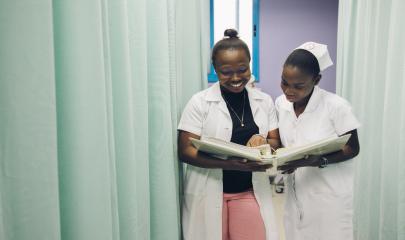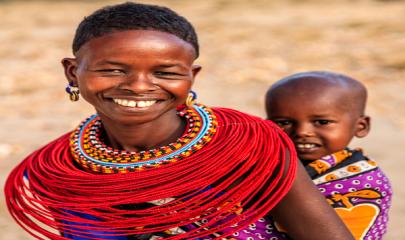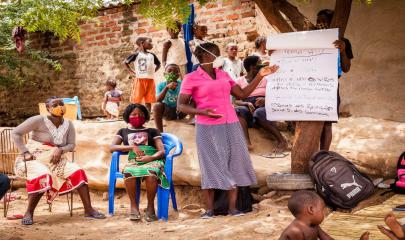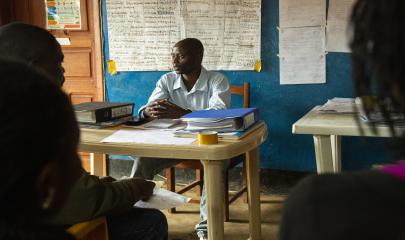Collaboration Improves Health Insurance Coverage in Nigeria


Collaboration to improve health insurance coverage in Nigeria had long been a problem before the intervention of USAID’s Abt-led Local Health System Sustainability Project (LHSS) in 2022. Two key government agencies in Plateau State, Nigeria had been working separately to provide social services for poor and vulnerable people. The Plateau State Contributory Health Care Management Agency (PLASCHEMA) and the Plateau State Operations Coordinating Unit (SOCU) of the National Social Safety-Nets Coordinating Office didn’t communicate with each other, and each followed its own process for identifying people in need.
While SOCU’s method of identifying people entitled to safety-net services had produced a rich, evidence-based database, PLASCHEMA relied on methods that inadvertently missed many poor and vulnerable individuals who qualified for its free health insurance program. According to a PLASCHEMA official, “There was no network for mining and use of available data on the vulnerable for health interventions.”
To open the lines of communication to promote increased health insurance coverage, Abt arranged for representatives of the two Nigerian entities to meet in March 2023. It was the first time they had talked in person. Follow-up meetings over the next few months strengthened their relationship.
During talks, PLASCHEMA learned that SOCU had completed community targeting to identify the poor and vulnerable across the state. Moreover, SOCU was willing to grant PLASCHEMA access to the state’s Social Register to enable enrollment of additional beneficiaries in the state’s 325 federal and state wards into the Basic Health Care Provision Fund (BHCPF), a public health insurance program that provides access to essential health services to the poor and vulnerable.
Moving forward, PLASCHEMA will use the more objective and reliable data in SOCU’s Social Register to target the right communities and ensure vulnerable persons are identified and enrolled in the health insurance program. In addition, PLASCHEMA has identified an opportunity to offer BHCPF insurance to over 300,000 vulnerable households across Plateau State that currently participate in the SOCU-administered Conditional Cash Transfer program.
“We are happy to be working together,” a SOCU official remarked on the new relationship with PLASCHEMA. “It starts from here, then every other thing begins to happen.”
Abt will continue supporting the interagency partnership toward the twin goals of sustained collaboration and increased coverage and financial protection of Plateau State’s most vulnerable residents after LHSS ends.
Read More
Health Policy & Systems in Sub-Saharan Africa

Local Health System Sustainability Project (LHSS)
Abt helped 25 countries reform their own health financing, improve access to and quality of health services, and prevent and contain disease outbreaks.

Global Health Newsletter November 2024
In a Complex Country, What’s Working for Better Health Peru Approves Groundbreaking Law to Extend Health Coverage for Migrants with HIV and TB Furthering Jamaica’s One Health Approach New Evidence for Patient-Centered HIV Service Delivery Approaches in Mozambique Funding Model Helps Bangladesh Expand Primary Health Care Centering Community at the Heart of ITN Distribution Campaigns in Côte d’Ivoire Tackling Antimicrobial Resistance: Integration and Systems Strengthening Spotlighting the Power of Solar for Primary Health in Nigeria’s Off-Grid Communities Global Migration and Health: Beyond a Humanitarian Response Scaling Innovative Locally Led Solutions to Global Health Security Threats in Madagascar Transforming Healthcare Systems in Tanzania Through Digitalization

Insights and Approaches from Five Years of Addressing HIV Epidemic Control in Mozambique
The ECHO project is advancing HIV epidemic control in Mozambique through innovative approaches, local empowerment, and sustainable strategies for testing, treatment, and viral load suppression

